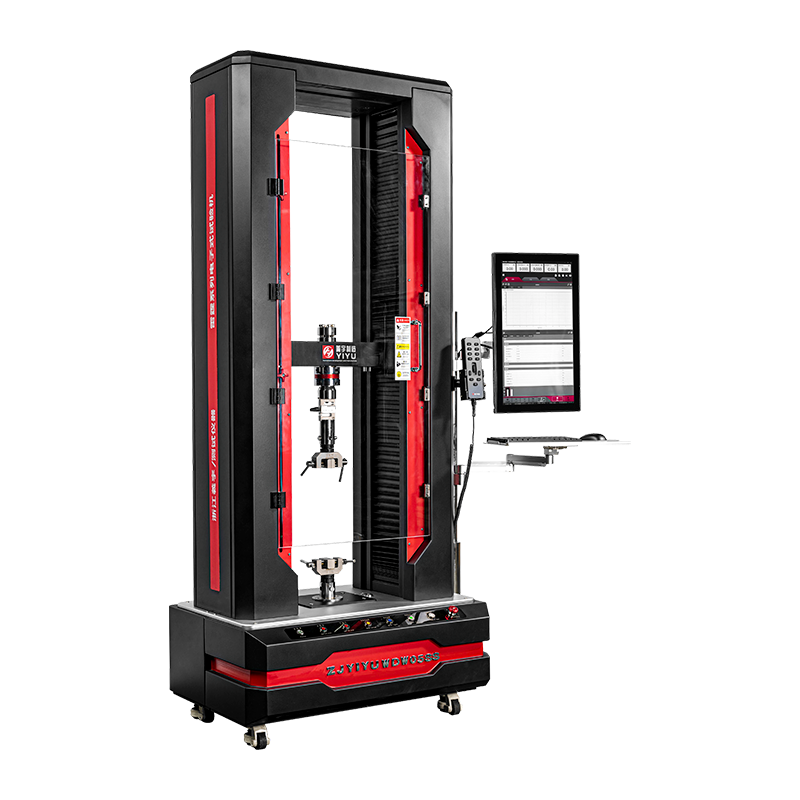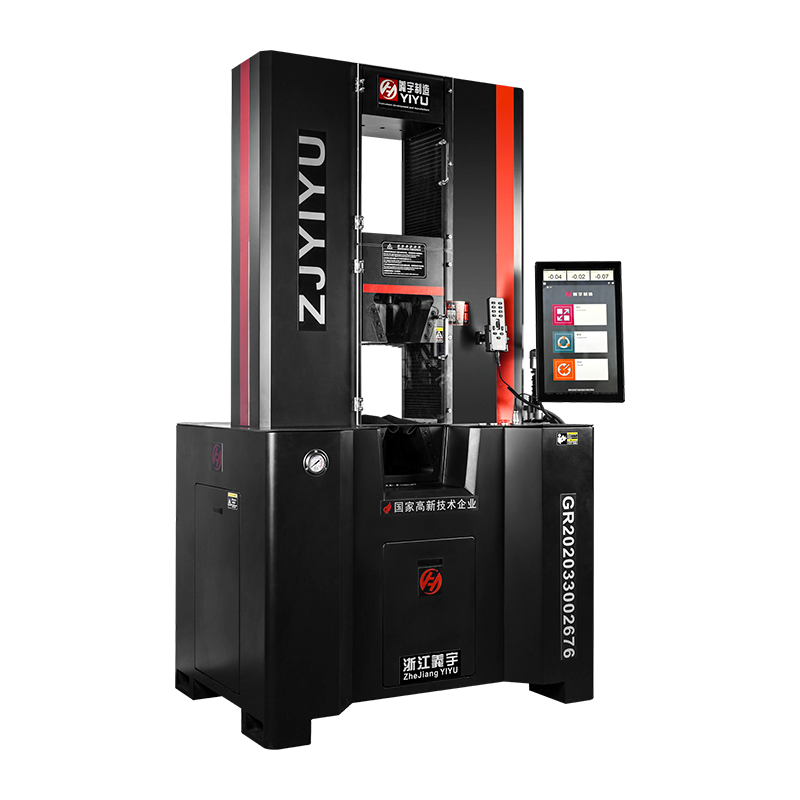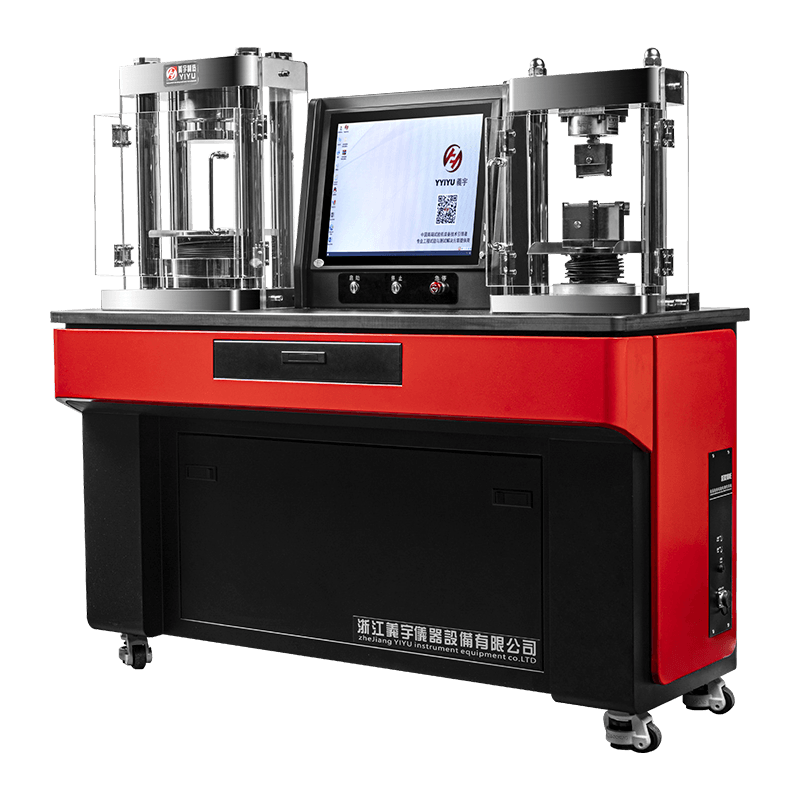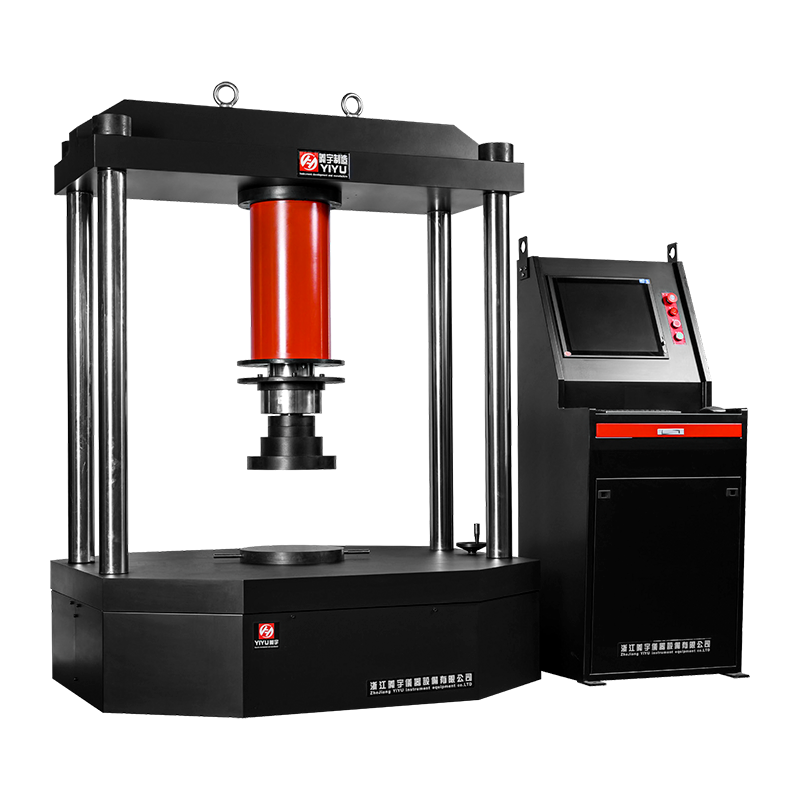In modern construction, the quality of building materials directly determines the safety and service life of a building. With the continuous advancement of construction technology and materials, scientifically and accurately testing and evaluating material properties has become a crucial aspect of engineering design and construction. As a high-precision testing tool, compression shear testing machines have been widely used in the construction industry, playing a key role in mechanical property testing of building materials such as concrete, rebar, and soil.
What is a compression shear testing machine?
A compression shear testing machine is a device that measures the mechanical behavior of a material under the influence of pressure and shear forces. It can measure key indicators of building materials, such as compressive strength, shear strength, deformation characteristics, and fracture patterns, providing scientific material selection for construction projects. The precise testing capabilities of compression shear testing machines not only simulate the complex mechanical environments of materials in actual use but also provide architectural designers with detailed data support, helping to ensure the stability and safety of building structures.
Applications of Compression Shear Testing Machines in the Construction Industry
Evaluating the Compression and Shear Properties of Concrete and Mortar
Concrete is one of the most commonly used structural materials in modern construction, and its compressive and shear strengths are key factors affecting the safety and durability of buildings. Traditional compression testing often focuses solely on concrete's performance under a single compressive force. However, in actual use, concrete is often subjected to combined stresses, including compression and shear.
Compression shear testing machines can simulate the performance of concrete and mortar under multiple forces under realistic conditions. For example, in the design of bridges or high-rise buildings, concrete must withstand not only vertical compression but also lateral shear forces. Using compression shear testing machines, engineers can test the compressive and shear resistance of concrete under these combined stresses, thereby assessing its long-term stability and durability.
Testing the Shear Properties of Steel Bars
Steel bars are a key material for reinforcing concrete, and their shear properties are crucial to the stability of buildings. Rebar not only has to withstand tension but also needs to maintain structural integrity under shear forces. In earthquake-resistant design, the shear resistance of rebar is particularly important for a building's performance during an earthquake.
Using a compression shear testing machine to test the shear strength of rebar helps engineers assess its performance under actual loads, ensuring it effectively enhances the building's load-bearing capacity. This testing allows architects to optimize rebar placement and improve the building's earthquake resistance and safety.
Compressive and Shear Strength Testing of Soil and Foundation Materials
Soil is a crucial component of a building's foundation, and its stability directly determines the safety of the entire building. Different types of soil (such as clay and sand) have varying compressive and shear resistance, which is crucial for foundation design.
A compression shear testing machine can accurately measure soil deformation and shear strength under building loads. By performing shear tests on soil, engineers can determine the stability and bearing capacity of the foundation, providing a scientific basis for foundation design, preventing settlement or uneven settlement during construction, and ensuring the long-term stability of the building.
Shear Resistance Evaluation of Waterproof Materials
Waterproofing design is particularly important in building construction, especially in areas with high humidity, such as basements and bathrooms. Waterproofing materials must possess excellent shear resistance to withstand long-term pressure and shear forces, preventing waterproofing failure, water seepage, and structural damage.
Compression shear testing machines can test the performance of different waterproofing materials (such as waterproof coatings and membranes) under high pressure and shear forces. Through these tests, builders can select the most appropriate waterproofing materials, ensuring that buildings will not experience leakage during use and extending their service life.
Shear Resistance Testing of Building Adhesives and Adhesives
In modern buildings, many decorative and structural reinforcement projects rely on adhesives and adhesives. Whether it's tile bonding, wall decoration, or glass curtain wall installation, the shear strength of adhesives directly affects the building's aesthetics and safety. Compression shear testing machines play an important role in evaluating the performance of these materials.
Using compression shear testing machines, engineers can test the shear strength of different adhesives, enabling them to select the most appropriate adhesive and ensure a secure, durable bond between materials, avoiding structural problems caused by adhesive failure.
Advantages of compression shear testing machines: Providing reliable material performance data for the construction industry
The widespread use of compression shear testing machines in the construction industry offers many significant advantages, particularly in the areas of quality control, performance evaluation, and construction safety. Their unique advantages cannot be ignored.
High-precision testing ensures reliable test results
Compression shear testing machines, using advanced sensors and automated control systems, provide highly accurate test data. Whether it's concrete, rebar, or other building materials, compression shear testing machines can precisely measure how materials change under load, providing engineers with reliable data support. This enables more scientific material selection during building design and construction, reducing engineering risks associated with substandard materials.
Simulating Real-World Working Conditions to Improve Material Application Reliability
Building materials are often subjected to complex stresses during actual use. Compression shear testing machines can simulate these complex working conditions, providing more realistic test results. This is crucial for evaluating material performance, effectively avoiding engineering problems caused by inadequate material testing and ensuring the overall stability of the building.
Efficient Testing to Improve Construction Efficiency
The efficient testing provided by compression shear testing machines not only expedites the material performance evaluation process but also ensures that material quality meets standards in the early stages of construction, avoiding rework due to substandard materials during construction. This not only improves construction efficiency but also significantly reduces project costs.
Enhanced Building Safety
By accurately testing material performance under extreme conditions, compression shear testing machines can provide architects with detailed data to help them optimize structural designs, ensure that buildings can withstand the expected loads, and avoid safety hazards caused by substandard materials. Compression shear testing machines play a vital role in seismic design, compression design and durability testing.






